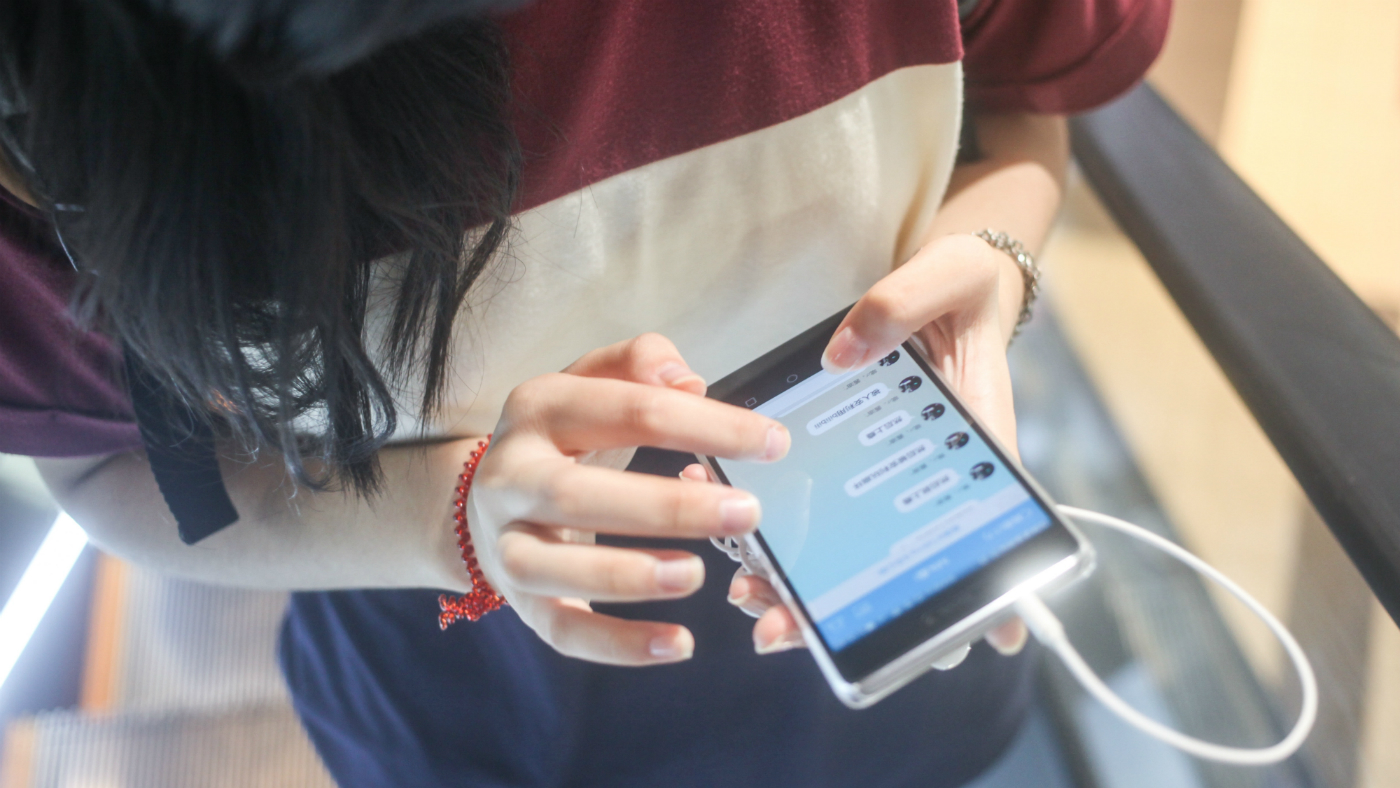Is screen time safe for children?
Chief medical officers issue eight-point guide for parents

A free daily email with the biggest news stories of the day – and the best features from TheWeek.com
You are now subscribed
Your newsletter sign-up was successful
The time children spend staring at screens is a constant source of worry for parents, amid fears that smartphones and computers can damage mental and physical health.
The UK’s chief medical officers, who advise the government on health, have looked at the existing scientific evidence and published their conclusions.
Here’s what they found.
The Week
Escape your echo chamber. Get the facts behind the news, plus analysis from multiple perspectives.

Sign up for The Week's Free Newsletters
From our morning news briefing to a weekly Good News Newsletter, get the best of The Week delivered directly to your inbox.
From our morning news briefing to a weekly Good News Newsletter, get the best of The Week delivered directly to your inbox.
Some studies found associations between screen-based activities and increased risk of anxiety or depression. However, there is no clear evidence of a causal link, say the medical officers. For example, a young person who already has mental health problems might be more likely to spend more time on social media.
This “does not mean that there is no effect”, they add, so “it is still wise to take a precautionary approach”.
They point to a “large volume of international research” showing that activities such as good-quality sleep and family time should supersede screen time “in their importance for ensuring the best start in life”.
However, they say there is insufficient scientific evidence to conclude exactly how long young people should spend on online activities.
A free daily email with the biggest news stories of the day – and the best features from TheWeek.com
Instead, they offer eight basic tips for balancing screen use with healthy living:
- Leave phones outside the bedroom to get better quality sleep
- Abide by school policies on screen time
- Talk to children before sharing their images online
- Take a break to move around after a couple of hours of sitting or lying down using a screen
- Talk to children about what they are looking at
- Use phone features to track screen time
- Keep family mealtimes screen-free
- Ensure screens are put away when crossing the road
A report from the Royal College of Paediatrics and Child Health (RCPCH) published last month came to a similar conclusion that screens were not a definite cause for poor health. Dr Max Davie, the college’s lead for health promotion, said at the time: “We’ve got decades of data showing real-life social contact, exercise, healthy eating and sleep are of benefit. So where screen time can interfere with those activities, that seems to be a good place to start intervening.”
The NSPCC agreed that screens are not intrinsically harmful, but warned that children’s screen time should supervised in order to ensure they aren’t exposed to dodgy online content.
“Whether a child is online for five minutes or five hours, they should be protected from harmful or inappropriate content and behaviour,” said a spokesperson for the charity.
“Parents can help their children by remembering TEAM: talk to your child about online safety, explore their online world together, agree what’s OK and what’s not, manage privacy settings and controls.”
-
 How to Get to Heaven from Belfast: a ‘highly entertaining ride’
How to Get to Heaven from Belfast: a ‘highly entertaining ride’The Week Recommends Mystery-comedy from the creator of Derry Girls should be ‘your new binge-watch’
-
 The 8 best TV shows of the 1960s
The 8 best TV shows of the 1960sThe standout shows of this decade take viewers from outer space to the Wild West
-
 Microdramas are booming
Microdramas are boomingUnder the radar Scroll to watch a whole movie
-
 Epstein files topple law CEO, roil UK government
Epstein files topple law CEO, roil UK governmentSpeed Read Peter Mandelson, Britain’s former ambassador to the US, is caught up in the scandal
-
 Iran and US prepare to meet after skirmishes
Iran and US prepare to meet after skirmishesSpeed Read The incident comes amid heightened tensions in the Middle East
-
 Israel retrieves final hostage’s body from Gaza
Israel retrieves final hostage’s body from GazaSpeed Read The 24-year-old police officer was killed during the initial Hamas attack
-
 China’s Xi targets top general in growing purge
China’s Xi targets top general in growing purgeSpeed Read Zhang Youxia is being investigated over ‘grave violations’ of the law
-
 Panama and Canada are negotiating over a crucial copper mine
Panama and Canada are negotiating over a crucial copper mineIn the Spotlight Panama is set to make a final decision on the mine this summer
-
 Why Greenland’s natural resources are nearly impossible to mine
Why Greenland’s natural resources are nearly impossible to mineThe Explainer The country’s natural landscape makes the task extremely difficult
-
 Iran cuts internet as protests escalate
Iran cuts internet as protests escalateSpeed Reada Government buildings across the country have been set on fire
-
 US nabs ‘shadow’ tanker claimed by Russia
US nabs ‘shadow’ tanker claimed by RussiaSpeed Read The ship was one of two vessels seized by the US military